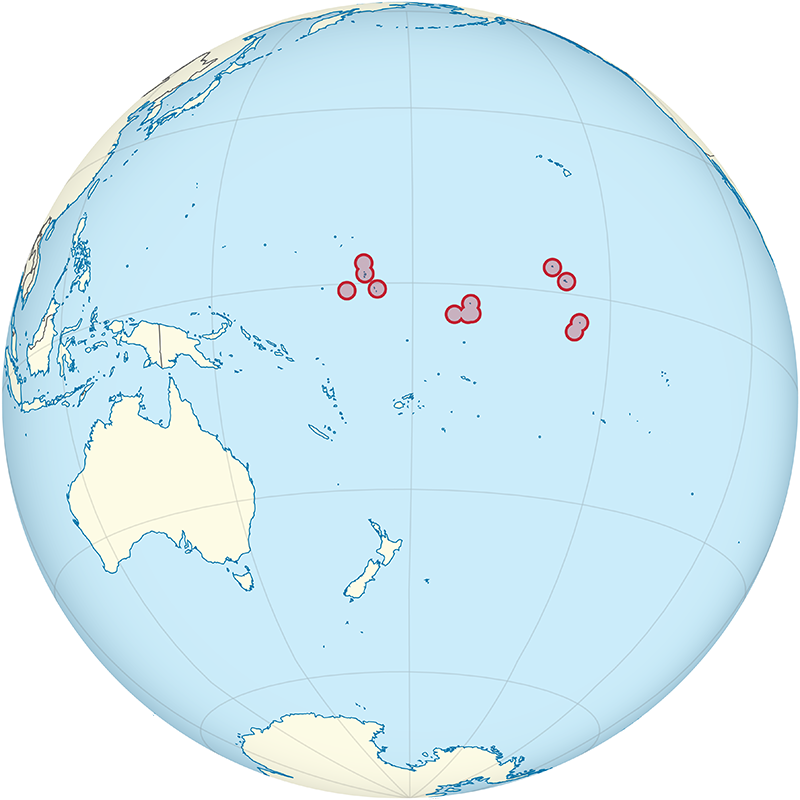
- Population:
- 135,000
- Religion:
- Christianity
Kiribati gained independence in 1979 after years of British rule. It is made up of low-lying atolls and faces significant challenges due to climate change and rising sea levels. The economy is based on fishing, agriculture, and international aid.
Kiribati, officially the Republic of Kiribati, is an island nation in the central Pacific Ocean, consisting of 33 atolls and reef islands, dispersed over 3.5 million square kilometers. It is situated near the equator and the International Date Line, with its islands spread across both the eastern and western hemispheres. Covering a land area of approximately 811 square kilometers, Kiribati has a population of about 120,000 people as of 2023. The capital is South Tarawa, located on the Tarawa atoll. The official languages are English and Gilbertese (Kiribati). Kiribati operates as a unitary parliamentary republic. The economy is limited, with key sectors including fishing, copra production, and remittances from overseas workers. Kiribati faces significant challenges due to climate change and rising sea levels, threatening its low-lying islands. The country is a member of international organizations such as the United Nations, the Pacific Islands Forum, and the Commonwealth of Nations.





